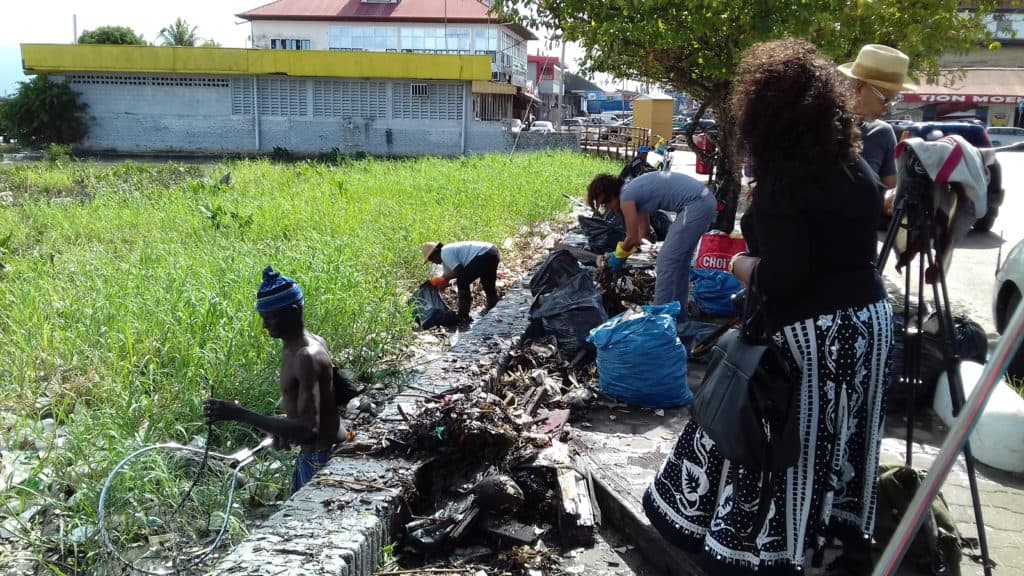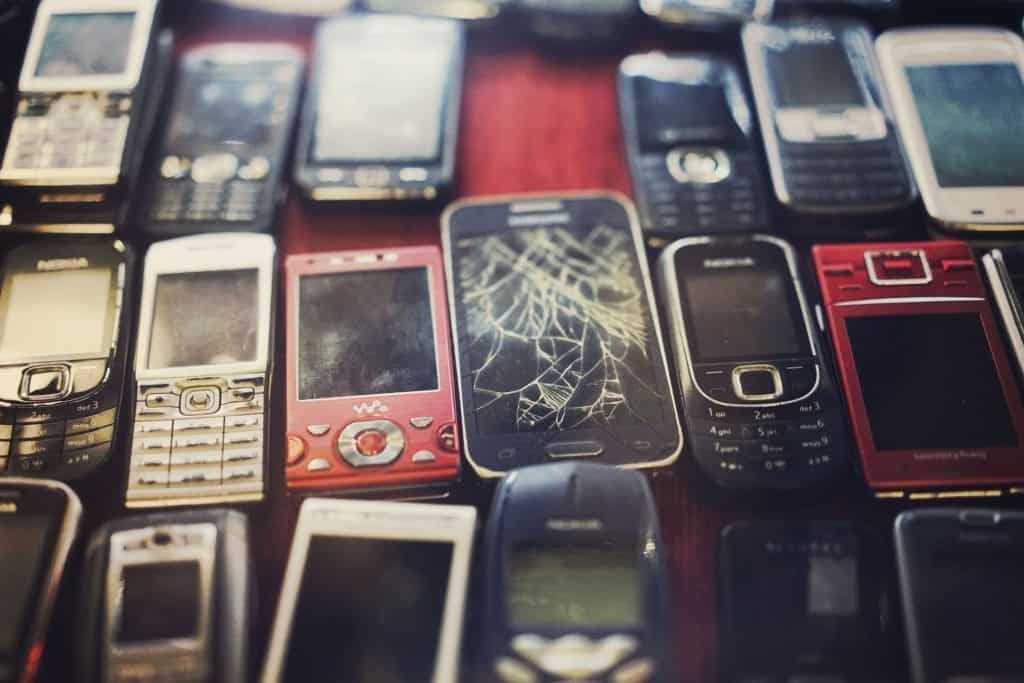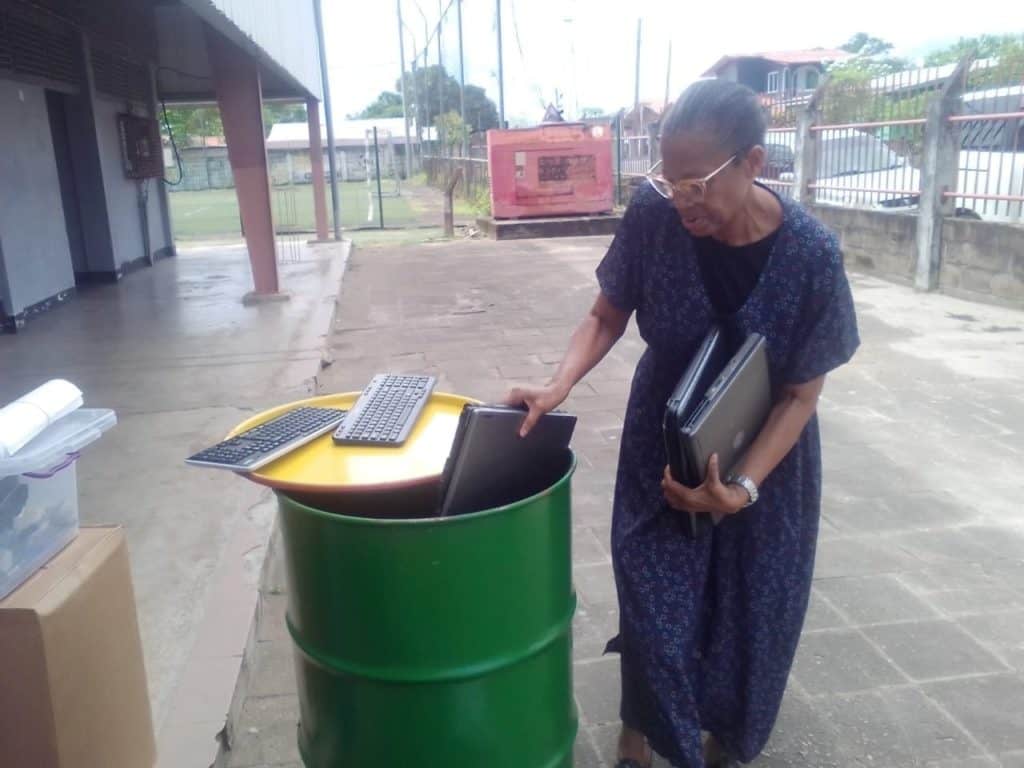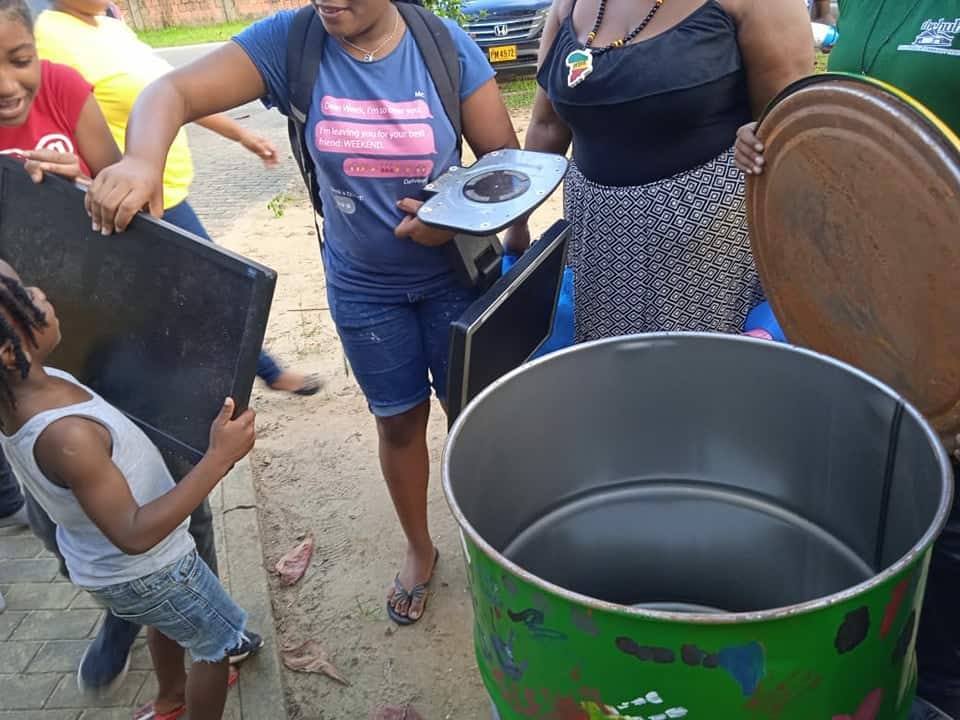In recent years, non-governmental organisations (NGOs) have played a noticeable role in efforts to promote more sustainable electronic waste (e-waste) management practices in Suriname.
Since 2015, Support Recycling Suriname (SuReSur) has worked to raise awareness in local communities for sustainable waste management practices like effective waste separation techniques to aid in easier recycling.
To achieve this, the group placed recycling bins in several communities and mobilised people to use them through an extensive education campaign.
But though the group’s initial focus was the recycling of aluminum cans, plastics and glass bottles, they are now expanding their focus to raising awareness for proper e-waste management given Suriname’s increasing focus on renewable energy.

Green tech and e-waste
E-waste is classified as a hazardous waste according to The Basel Convention and commonly refers to all electrical and electronic equipment (EEE) -and its parts- that have been discarded without the intent of reuse.
With transitioning to clean energy high on Suriname’s agenda, the Staatsolie Maatschappij Suriname (State Oil Company) increased its efforts to support clean energy in recent years and the Energy Company of Suriname has also been setting up various solar energy stations.
But it cannot be overlooked that green technology such as solar energy and electric car batteries can add to existing mismanaged streams of e-waste if not disposed of properly.

The Basel Convention study on e-waste in Suriname
From 2014-2016, the Basel Convention Regional Centre for Training and Technology Transfer conducted a study on e-waste in the Caribbean.
In Suriname, the study aimed to identify stakeholders involved in EEE generation and management, the relationships between these stakeholders and how these stakeholders contribute to overall e-waste generation and management.
The findings highlighted the gaps in knowledge and practices that exist across different sectors.
It also revealed significant weaknesses as it relates to EEE consumption and EEE generation in Suriname.

Currently, most of the country’s e-waste is discarded with other household trash and ends up in a landfill which poses a danger to the environment and is not in line with the Basel convention.
Another finding showed Suriname’s collection of e-waste is mainly done on an as-needed basis to support the sale of metal components but not necessarily with the environment in mind.
Given this, the existing practices for salvaging metals for commercial use do not necessarily amount to the wise re-use or recovery of these resources within the local system.
The Basel Convention on the Control of Transboundary Movements of Hazardous Wastes and their Disposal was ratified in Suriname on December 19, 2011, which means the country has committed to the safe transport and handling of e-waste.
Suriname’s NGOs tackle e-waste
Recognising the need for greater awareness on the issue, SuReSur has directed efforts to the cause which includes supporting community-based organisation Self-Awareness & Information Technology (SITA) Foundation with the collection and awareness on e-waste in Suriname.
In February 2022, SITA started a campaign on e-waste awareness in partnership with the Stibula Foundation and the Stitching the Community Hub which is a community-based library and community centre in Paramaribo, Suriname.
Apart from setting up several e-waste collection bins and designating special recycling days for communities, the foundation is also hosting information sessions on e-waste.

SITA founder Lucien Berghout said the campaign has been received well by the public.
Berghout told Cari-Bois, “During the past seven months the organisation received various calls from private sector businesses, who are interested in disposing of their e-waste in a safe manner.”
The project’s Community Hub focal point Anushka Blanca functions as an e-waste collection manager and also engages in community outreach efforts.
Wilgo Koster is one of the project’s coordinators.
Koster explained it is motivating to see more people becoming aware of how they can contribute to proper e-waste management by simply separating waste so it can easily be recycled.

NGOs receive support for e-waste projects
The NGOs e-waste project has received support from the local telecommunication company Telesur.
Apart from making two of their offices available as a location for collection bins, the company also provides support by participating in online e-waste awareness efforts.
Other e-waste efforts
Outside of the NGOs projects, Suriname is also a participant in the regional Inter-American Development Bank’s (IDB) “E-waste Management” project.
Financed by the IDB, the two-year project focuses on increasing knowledge of e-waste. and is under supervision of the Basel Convention Regional Centre for Training and Technology Transfer for the Caribbean Region.
This project is also set to be conducted in Guyana and Trinidad & Tobago.
This story was published with the support of The Cropper Foundation and Climate Tracker’s Caribbean Citizen Climate Journalism Fellowship.





